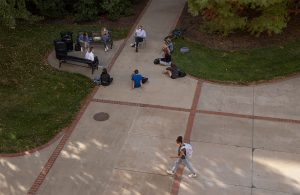Educating students to become tomorrow’s leaders, part 2
March 5, 2021

In my last post, I talked about the characteristics found in successful leaders and how Mizzou is working to enhance its learning models. The pandemic has brought a need for us to adapt quickly, for two main reasons:
1. We simply can’t conduct our educational activities in the same way we did before the pandemic; and
2. These disruptions will have a more long-lasting and widespread effect than many of us initially thought.
While Mizzou was always working toward more innovative learning strategies, the pandemic accelerated these developments. Think about it this way: It’s like we had been using a flashlight to search for a specific package in a dark warehouse — then suddenly, someone turned on the lights.
Going forward, I believe we can leverage these lessons toward greater progress:
- Our students are incredibly resilient, collaborative, adaptable and technologically savvy. Now we need to harness these characteristics as we rethink our learning models.
- The extra miles that our faculty invested in educating our students during the pandemic demonstrates their commitment to our teaching mission.
- The gap in digital access is real and problematic. By addressing this gap, we can further integrate digital tools into our curriculums as we build a global educational environment that promotes inclusive excellence in our living, learning and working.
- The post-pandemic workforce will look very different, including how people work and what kind of work they do. We must prepare our students to navigate those changes not just for the time they graduate, but also for the rest of their lives.
— Mun